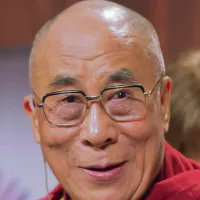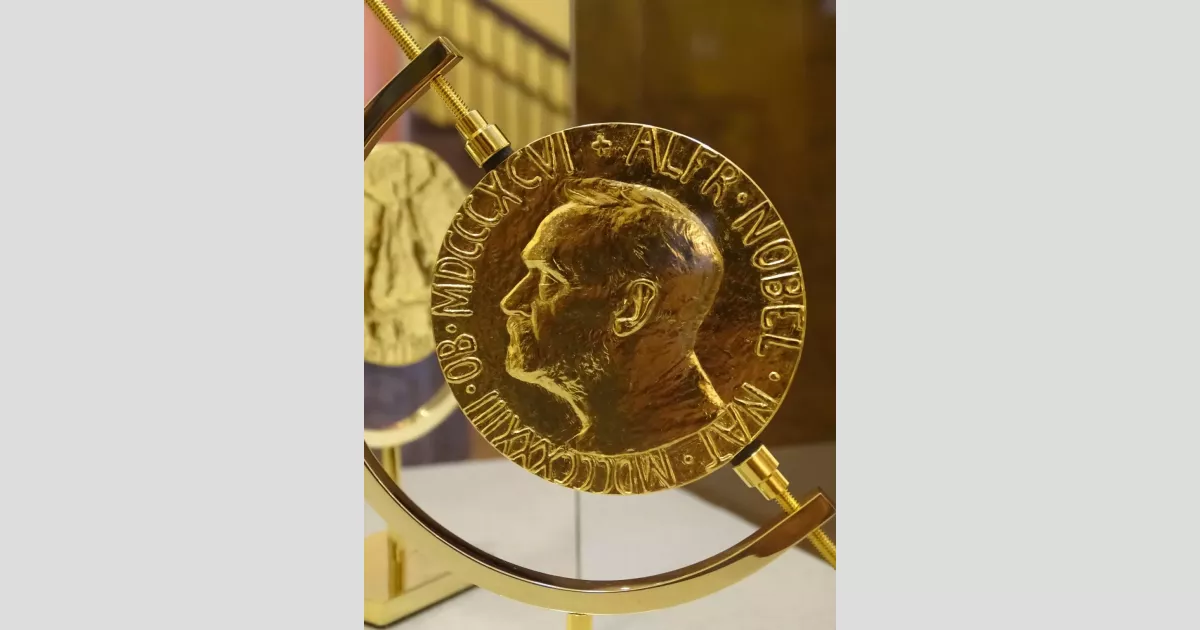The Nobel Peace Prize, established by Alfred Nobel in 1901, is awarded annually to individuals who have made significant contributions to promoting peace, fostering fraternity between nations, reducing standing armies, and organizing peace congresses. It's one of the five Nobel Prizes and is widely considered the most prestigious prize globally, recognizing efforts toward international harmony and the reduction of conflict.
March 1901: Nobel Peace Prize Awarded
In March 1901, the Nobel Peace Prize was awarded for the first time, in accordance with Alfred Nobel's will. The prize is awarded to individuals who have "done the most or the best work for fraternity between nations, for the abolition or reduction of standing armies and for the holding and promotion of peace congresses."
1901: Ceremony took place in the Storting (Parliament)
From 1901 to 1904, the Nobel Peace Prize ceremony took place in the Storting (Parliament).
1901: Ceremony held in the Parliament
In 1901, the Nobel Peace Prize award ceremony took place in the Parliament for the first time.
1901: Medal designed by Gustav Vigeland
In 1901, the medal for the Peace Prize was designed by the Norwegian sculptor Gustav Vigeland.
1901: Nominations from 1901 Released
Nominations from 1901 to 1971 have been released in a database.
1904: Last Ceremony took place in the Storting (Parliament)
From 1901 to 1904, the Nobel Peace Prize ceremony took place in the Storting (Parliament) for the last time.
1904: Last Ceremony held in the Parliament
In 1904, the Nobel Peace Prize award ceremony took place in the Parliament for the last time.
1905: Ceremony took place at the Norwegian Nobel Institute
Between 1905 and 1946, the Nobel Peace Prize ceremony took place at the Norwegian Nobel Institute.
1905: Ceremony held in Norwegian Nobel Institute
In 1905, the Nobel Peace Prize award ceremony took place at the Norwegian Nobel Institute.
1917: International Committee of the Red Cross won Nobel Prize
The International Committee of the Red Cross won Nobel Prize in 1917.
1937: Gandhi Nominated
Mahatma Gandhi was nominated for the Nobel Peace Prize in 1937.
1938: Gandhi Nominated
Mahatma Gandhi was nominated for the Nobel Peace Prize in 1938.
1939: Adolf Hitler Receives Satirical Nomination
In 1939, Adolf Hitler received a satirical nomination for the Nobel Peace Prize from a member of the Swedish parliament, mocking the nomination of Neville Chamberlain.
1939: Gandhi Nominated
Mahatma Gandhi was nominated for the Nobel Peace Prize in 1939.
1944: International Committee of the Red Cross won Nobel Prize
The International Committee of the Red Cross won Nobel Prize in 1944.
1946: Last Ceremony took place at the Norwegian Nobel Institute
Between 1905 and 1946, the Nobel Peace Prize ceremony took place at the Norwegian Nobel Institute for the last time.
1946: Last Ceremony held in Norwegian Nobel Institute
In 1946, the Nobel Peace Prize award ceremony took place at the Norwegian Nobel Institute for the last time.
1947: Ceremony in assembly hall of the University of Oslo
From 1947, the Nobel Peace Prize award ceremony was held in the assembly hall of the University of Oslo.
1947: Ceremony held in the Atrium of the University of Oslo Faculty of Law
From 1947, the Nobel Peace Prize ceremony was held in the Atrium of the University of Oslo Faculty of Law.
1947: Gandhi Nominated
Mahatma Gandhi was nominated for the Nobel Peace Prize in 1947.
January 1948: No Prize Awarded After Gandhi's Death
In January 1948, following Gandhi's death, the Nobel Committee declined to award a Nobel Peace Prize, stating there was no suitable living candidate that year.
1954: Office of the United Nations High Commissioner for Refugees won Nobel Prize
The Office of the United Nations High Commissioner for Refugees won Nobel Prize in 1954.
1963: International Committee of the Red Cross won Nobel Prize
The International Committee of the Red Cross won Nobel Prize in 1963.
1971: Nominations to 1971 Released
Nominations from 1901 to 1971 have been released in a database.
1973: Controversy Surrounds Award to Kissinger and Lê Đức Thọ
The 1973 Nobel Peace Prize award to Henry Kissinger and Lê Đức Thọ was highly controversial, leading to resignations from the selection committee and widespread criticism.
1981: Office of the United Nations High Commissioner for Refugees won Nobel Prize
The Office of the United Nations High Commissioner for Refugees won Nobel Prize in 1981.
1989: Last Ceremony in assembly hall of the University of Oslo
In 1989, the Nobel Peace Prize award ceremony was last held in the assembly hall of the University of Oslo.
1989: Last Ceremony held in the Atrium of the University of Oslo Faculty of Law
In 1989, the Nobel Peace Prize ceremony was held in the Atrium of the University of Oslo Faculty of Law for the last time.
1989: Dalai Lama Awarded Peace Prize
When the Dalai Lama was awarded the Peace Prize in 1989, the chairman of the committee said that it was "in part a tribute to the memory of Mahatma Gandhi."
1990: Ceremony held in Oslo City Hall
Since 1990, the Nobel Peace Prize award ceremony has been held in Oslo City Hall.
2006: Secretary of Norwegian Nobel Committee regrets the omission of Mahatma Gandhi
In 2006, Geir Lundestad, Secretary of the Norwegian Nobel Committee, stated that the greatest omission in the committee's history was that Mahatma Gandhi never received the Nobel Peace Prize.
2009: Record Nominations Received
In 2009, a record of 205 nominations were received for the Nobel Peace Prize.
2010: Nominations Record Broken
In 2010, the record for nominations for the Nobel Peace Prize was broken with 237 nominations.
2011: Criticism from Michael Nobel
In 2011, Michael Nobel, the grandson of one of Alfred Nobel's brothers, criticized the politicization of the Nobel Peace Prize.
2011: Criticisms of the Award
In 2011, a story in the Norwegian newspaper Aftenposten highlighted criticisms of the Nobel Peace Prize including the composition of the Norwegian Nobel Committee, openness about criteria, and adherence to Nobel's will.
2011: Nominations Record Broken Again
In 2011, the record for nominations for the Nobel Peace Prize was broken again with 241 nominations.
2020: Typical Award Amount
Around 2020, typical Nobel Peace Prize awards were on the order of roughly 10 million SEK, which translated to roughly 1 million USD.
October 2023: Peace Prize Statistics
As of October 2023, the Nobel Peace Prize has been awarded to 111 individuals and 27 organizations. 19 women have won the Nobel Peace Prize, more than for any other Nobel Prize.
2024: Nobel Peace Prize Awarded to Nihon Hidankyo
In 2024, the Nobel Peace Prize was awarded to Nihon Hidankyo from Japan, an organization formed by survivor groups of atomic bomb victims "for its efforts to achieve a world free of nuclear weapons and for demonstrating through witness testimony that nuclear weapons must never be used again".
Mentioned in this timeline

The Dalai Lama is the title given to the head...
Trending
14 minutes ago Hyatt's Credit Card Benefits and Expansion into Rome with New Regency Hotel.

15 minutes ago Will Jacks shines as England defeats Sri Lanka in T20 World Cup.
15 minutes ago Predictions and comments surround Kamil Majchrzak's tennis matches in Dubai and beyond.

15 minutes ago Ugo Humbert defeats Tsitsipas in Dubai; Tsitsipas reflects on career stage.
1 hour ago DOJ Accused of Withholding Epstein Files Related to Trump Accusations.

1 hour ago Luff traded to Islanders for Gauthier in NHL post-Olympics move.
Popular

Jesse Jackson is an American civil rights activist politician and...

Barack Obama the th U S President - was the...

Susan Rice is an American diplomat and public official prominent...

Michael Joseph Jackson the King of Pop was a highly...

Bernie Sanders is a prominent American politician currently serving as...

XXXTentacion born Jahseh Dwayne Ricardo Onfroy was a controversial yet...
